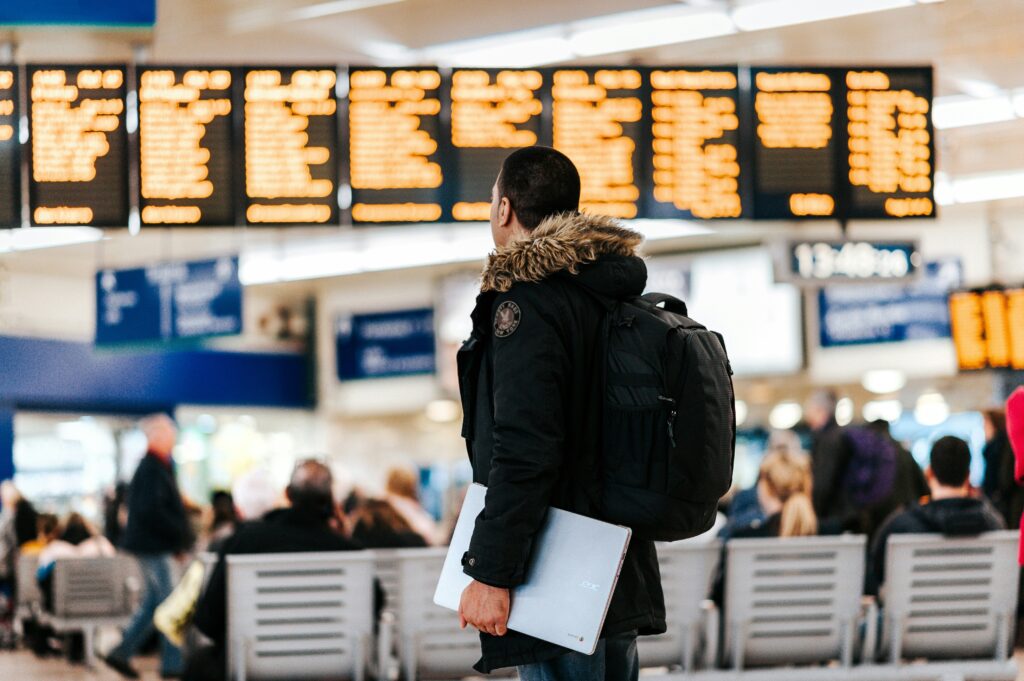Traveling abroad is an exciting adventure, full of new experiences and cultural discoveries. However, amidst the thrill of planning itineraries and packing bags, there are often unexpected costs that catch travelers off guard. Beyond flights and accommodation, here are ten things you may be surprised to find yourself paying for when traveling abroad.
Visa Fees

When traveling abroad, any countries typically mandate visitors to secure a visa prior to entry, often involving associated fees. Understanding these visa requirements and associated costs is crucial for travelers planning international trips. This fee varies widely depending on the country and the type of visa needed. It’s essential for travelers to research visa requirements well in advance of their trip to avoid any issues or delays at immigration checkpoints. Visa costs vary widely depending on the country you’re visiting and your nationality. Some countries have reciprocal agreements that waive visa fees for certain passport holders, but it’s crucial to research and budget for this expense well in advance of your trip.
Tourist Taxes

In addition to visa fees, some destinations impose tourist taxes or entry fees when traveling abroad. These charges are typically collected at airports or border crossings and contribute to local infrastructure or conservation efforts. European cities like Venice and Amsterdam have implemented tourist taxes to manage the environmental impact of visitors and maintain historic sites.
Local Transportation

While travelers anticipate the cost of long-distance flights, they may overlook the expenses of local transportation upon arrival. Public transportation expenses can add up swiftly, particularly in large cities with extensive transit systems that encompass buses, trains, and subways. It’s important for commuters and travelers alike to consider purchasing daily, weekly, or monthly passes where available to potentially save money on frequent travel expenses. Familiarizing oneself with fare structures and routes can also optimize cost-effective transit use. Additionally, rideshares and taxis in some countries may be pricier than expected due to different pricing structures or currency exchange rates.
Currency Exchange Fees

Converting currency is a necessity for when traveling abroad, but it often comes with fees and less favorable exchange rates. Banks and currency exchange services typically charge a commission or transaction fee, and rates can vary significantly depending on where and how you exchange money. To minimize expenses, consider exchanging currency at local banks or using credit cards that do not charge foreign transaction fees. Researching local currency exchange rates in advance can also help maximize savings. Additionally, withdrawing cash from ATMs that partner with your bank or offer favorable exchange rates can be a cost-effective option while traveling abroad.
Roaming Charges

Staying connected while abroad is essential for many travelers, but using your mobile phone can result in substantial roaming charges. International roaming fees for calls, texts, and data can quickly add up if you’re not on a suitable mobile plan. To avoid unexpected bills, check with your provider before your trip to explore international roaming packages or purchase local SIM cards for temporary use.
Travel Insurance

Travel insurance is frequently underestimated yet proves invaluable in unexpected situations like medical emergencies, trip cancellations, or lost luggage. Policies differ significantly in coverage and price, necessitating careful examination of the terms to ascertain which expenses are covered. Despite increasing upfront costs, investing in travel insurance offers reassurance and financial security throughout your journey. Travel insurance provides a safety net, shielding travelers from unexpected disruptions that could otherwise lead to significant financial burdens. It’s crucial for travelers to evaluate their individual needs and risks in order to choose a policy that best fits their travel plans and preferences.
Airport Transfer Fees

Arriving at your destination often involves navigating airport transfer options, which may include shuttle services, private transfers, or rental cars. These services can be convenient but come with fees that vary based on distance, location, and vehicle type. Planning ahead and comparing transfer options can significantly enhance your ability to find the most cost-effective and efficient way to reach your accommodation. Whether you opt for airport shuttles, public transportation, or rideshare services, researching and booking in advance can save time and money. Additionally, considering factors like travel time, convenience, and local transportation schedules can further streamline your journey and ensure a smoother arrival experience at your destination.
Tipping Customs

Tipping practices vary when traveling abroad, and what may be customary in one place could be unnecessary or even offensive in another. In some countries, service charges are automatically included in the bill, while in others, tipping is customary for specific services such as dining, taxis, or hotel staff. Understanding local tipping customs can help travelers navigate these expectations smoothly and courteously. Research local tipping customs before you travel to avoid awkward situations and ensure fair compensation for service providers.
Cultural And Heritage Site Fees

Exploring cultural and heritage sites is a highlight of international travel, but many popular attractions charge entrance fees. These fees support the preservation and maintenance of historical landmarks, museums, and archaeological sites. While some attractions offer free admission on certain days or times, budgeting for entrance fees ensures you can fully experience the cultural richness of your destination without financial surprises.
Health And Vaccination Costs

Health considerations are essential when traveling abroad, including vaccinations, medications, and travel health insurance. Certain countries mandate proof of specific vaccinations for entry, while others advise immunizations based on local health risks. To ensure thorough preparation and optimal protection for your trip, it’s recommended to consult with a healthcare provider or travel clinic before your departure, especially considering the varying costs of vaccinations. Their knowledge and guidance can aid you in making well-informed choices that are tailored to meet your specific travel needs and destinations.
For further information on traveling abroad, reference the following articles:
Top 10 Tourist Traps – Europe
The Best Places In The World To Study Abroad




